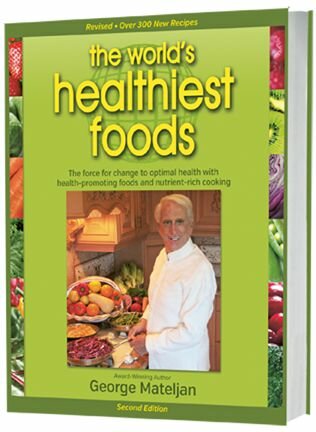 Special Announcement!
Special Announcement!
Introducing our New World's Healthiest Foods Menu! You can get 100% of nutrients from the WHFoods.
 Special Announcement!
Special Announcement!
Introducing our New World's Healthiest Foods Menu! You can get 100% of nutrients from the WHFoods.
To answer your great question and give you guidance as to how you can minimize your exposure to BPA, I wanted to first describe what this compound is including the health effects that it may have. Then we'll explore how common it is in canned foods, specifically organic canned foods, and give you recommendations as to how you may still be able to enjoy the convenience of organic canned beans while promoting your Healthiest Way of Eating.
Bisphenol A-often abbreviated as BPA-is a clearly problematic toxin from the standpoint of the ecosystem and ocean life, and a somewhat controversial toxin with respect to human health. Known from a chemical perspective as 2,2-bis(4 hydroxyphenyl)propane, BPA is widely dispersed in the environment.
There are many potential sources of exposure to BPA completely unrelated to food. BPA is often used in the manufacture of polycarbonates plastics, epoxy resins, and flame-retardant materials. It can be found in adhesives, polycarbonate plastics, automobile parts, laminated products designed to be bullet proof, some fax paper, and some CDs.
Within the world of food, two key sources of exposure to BPA are polycarbonate plastic water bottles (usually labeled with the Number 7 recycling symbol), and resin-based can liners that are used to reduce spoilage of canned foods. Baby bottles can also be a problem in terms of BPA exposure.
BPA is a bioactive compound that is able to bind onto an estrogen receptor on the nucleus of a cell and modify its function. BPA seems able to cause changes in some types of cell functions at very similar concentrations to the naturally produced estrogen molecule called estradiol. Especially during the fetal period before birth, BPA is of special concern with respect to later life changes in the risk of chronic disease, reproductive ability, and cancers of the breast and prostate. BPA is often referred to as an "endocrine disruptor" because of its ability to disrupt estrogen receptor activity, alter fertility, and increase risk of reproductive system-related cancers later in life. These health dangers posed by BPA exposure are clearly established with respect to fish and many ocean-living creatures. However, the human risks involved with exposure to BPA at food-related levels remains a matter of substantial debate within research studies. Some of the debate over BPA exposure and BPA risk may eventually turn out to hinge upon the health status of individuals exposed to BPA and their ability or inability to detoxify this toxin compound. Most of the BPA we get exposed to can be detoxified through a process called glucuronidation, and individuals can differ greatly in their ability to carry out this detoxification process.
The Environmental Working Group (EWG), a not-for-profit organization headquartered in Washington, D.C. that routinely issues reports on food-related toxins in the United States, released a report on bisphenol A in 2007. (This report can be found on EWG's website at the following URL address: http://www.ewg.org/reports/bisphenola/execsumm.php). In laboratory testing of 27 nationally marketed name-brand canned foods, the EWG found about half of all canned foods (55/97 cans) to contain BPA. The EWG further estimated that about 10% of all canned foods contain excessive levels of BPA.
To the best of our knowledge, BPA is not a prohibited toxin in the national organic foods legislation. Because polymers containing BPA are listed as "inert pesticide ingredients" in the U.S. Environmental Protection Agency's "List of Inert Pesticide Ingredients" as updated in August 2004, this potential toxin does not appear to be strictly prohibited in the canning process used for certified organic foods. For this reason, unless certified organic canned foods are also explicitly labeled as "BPA Free" on the can, we do not think you can be certain of avoiding BPA exposure.
However, it's also important to know that many organic manufacturers have already worked to eliminate BPA from their can liners, and other organic manufacturers are in the process of switching over to cans that are free of BPA. To find out if your favorite canned organic foods are manufactured using BPA-containing cans you will need to call the manufacturer. This will help you determine which products do and do not contain BPA. Of course, another way to be BPA free is to factor in a little more time to your meal preparation process and avoid canned foods altogether by starting with dried (versus canned) beans.
Everything you want to know about healthy eating and cooking from our new book.

Order this Incredible 2nd Edition at the same low price of $39.95 and also get 2 FREE gifts valued at $51.95. Read more
